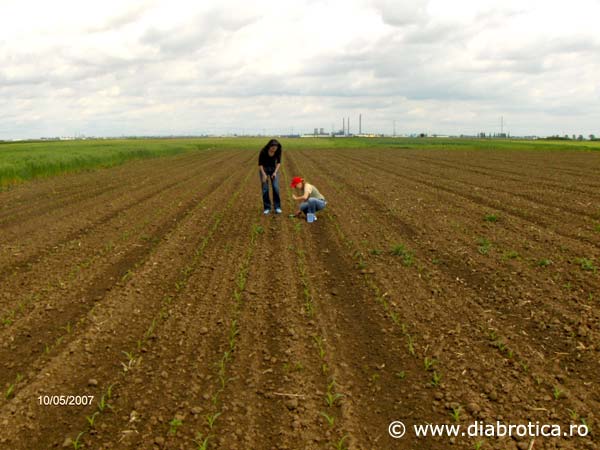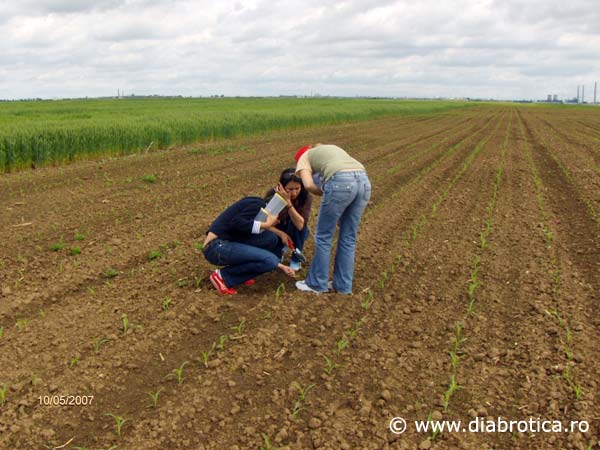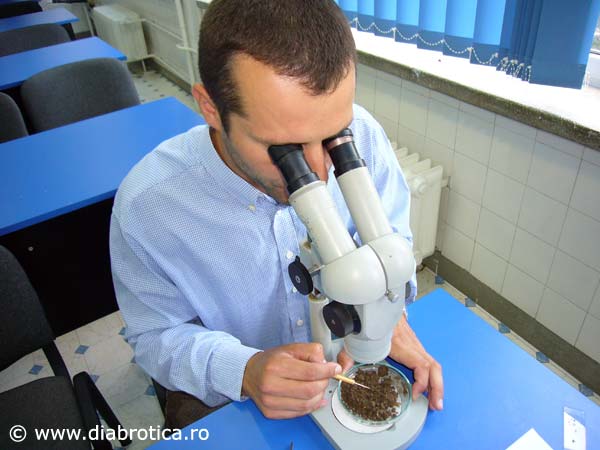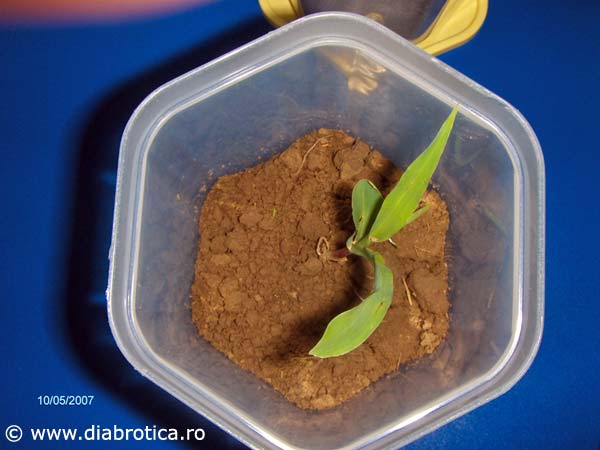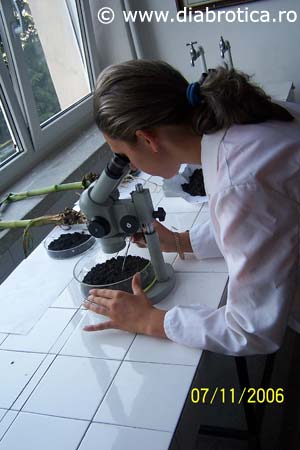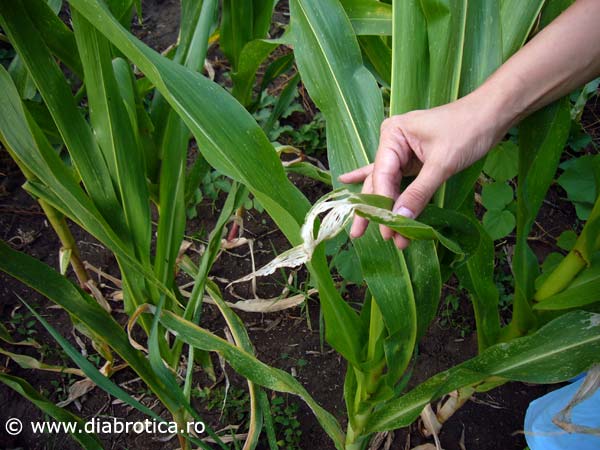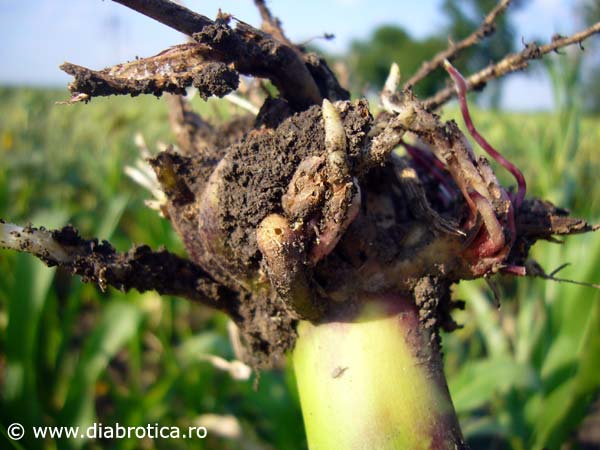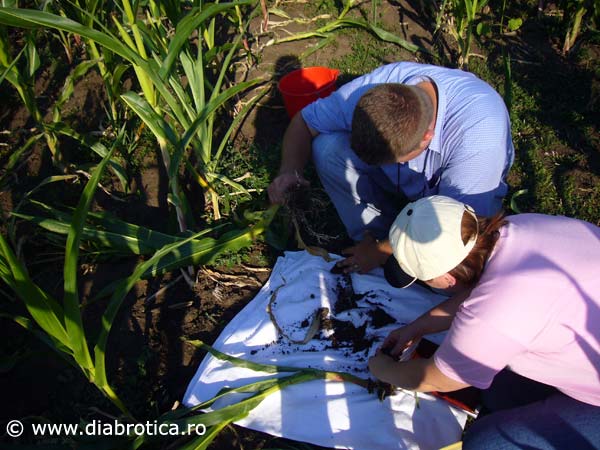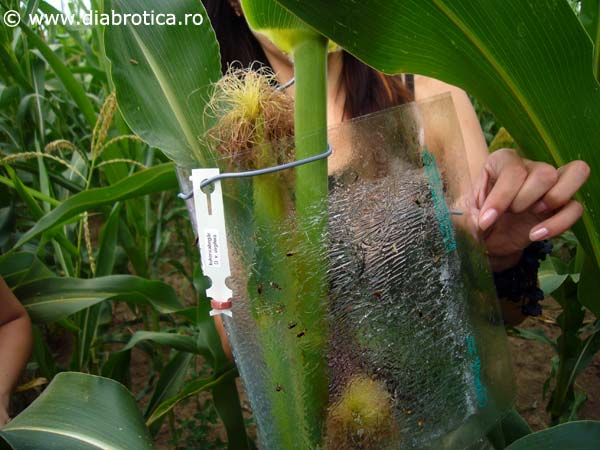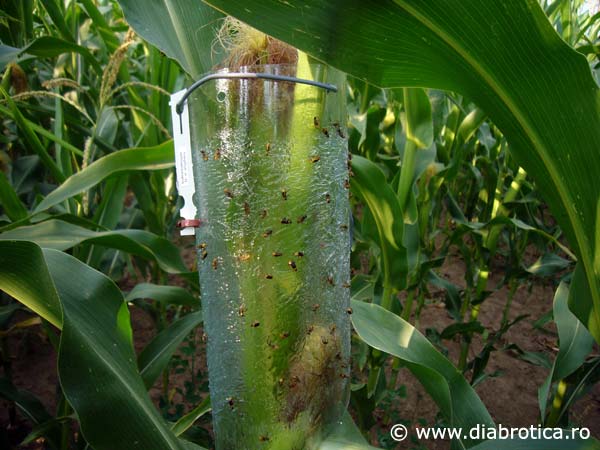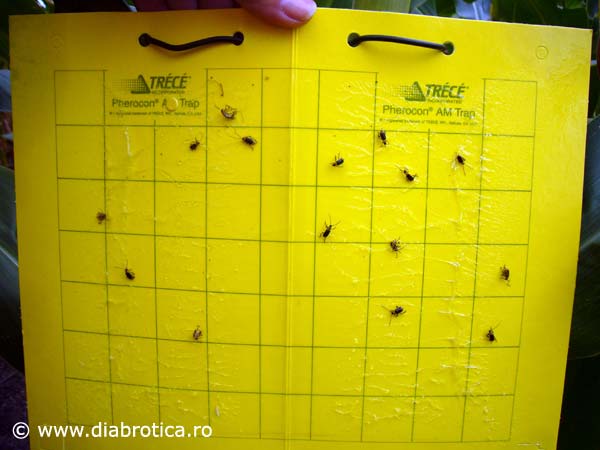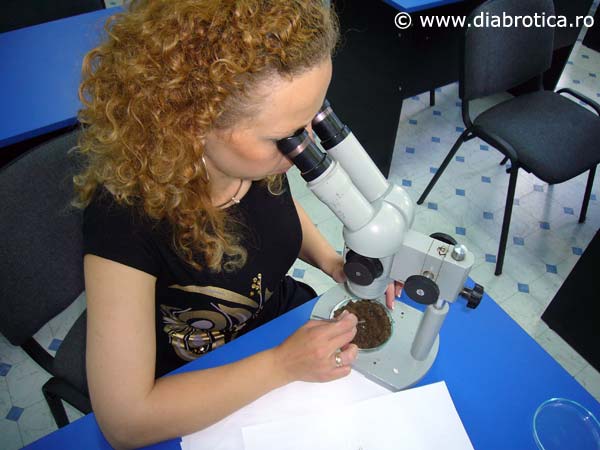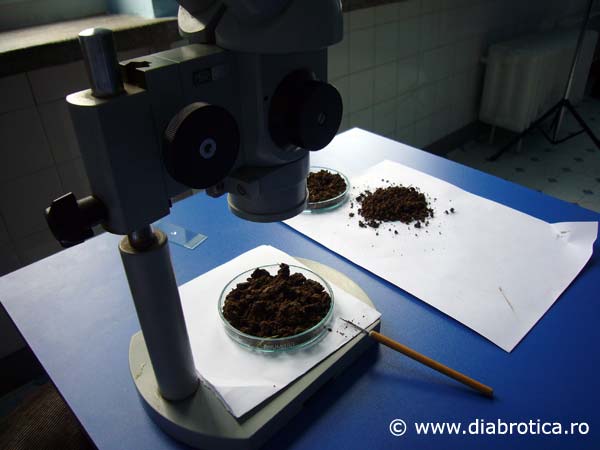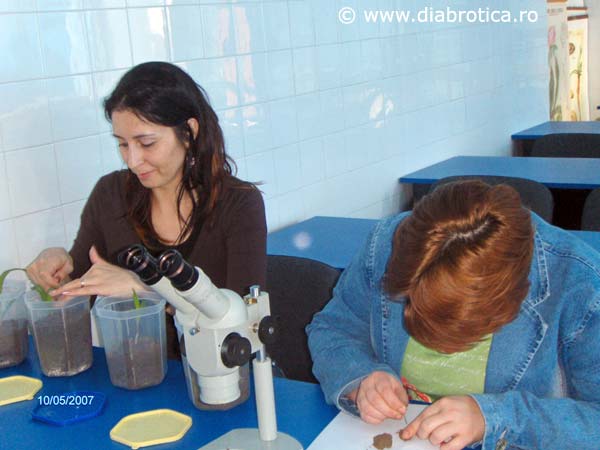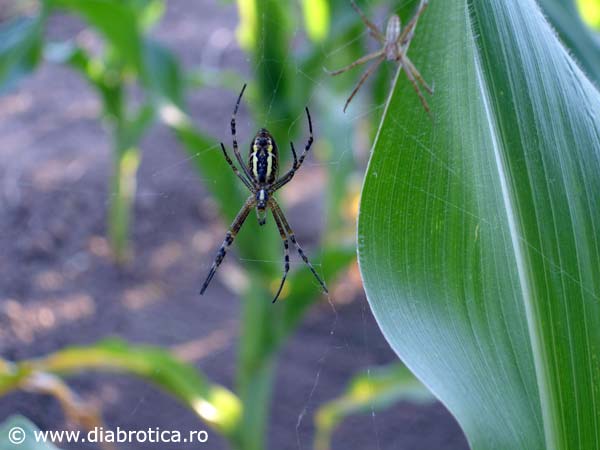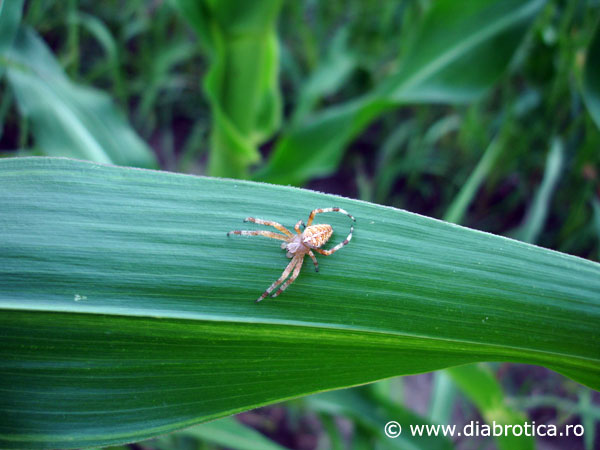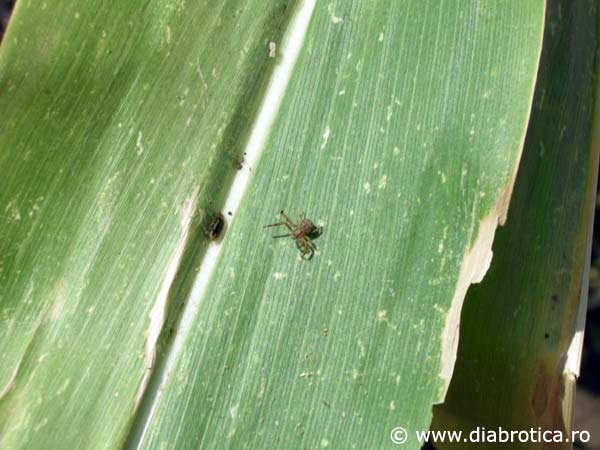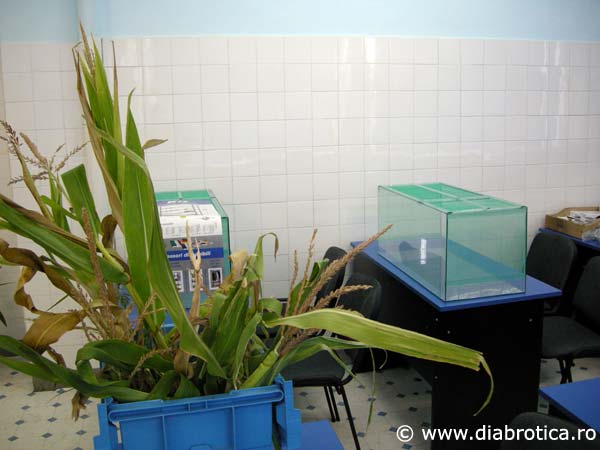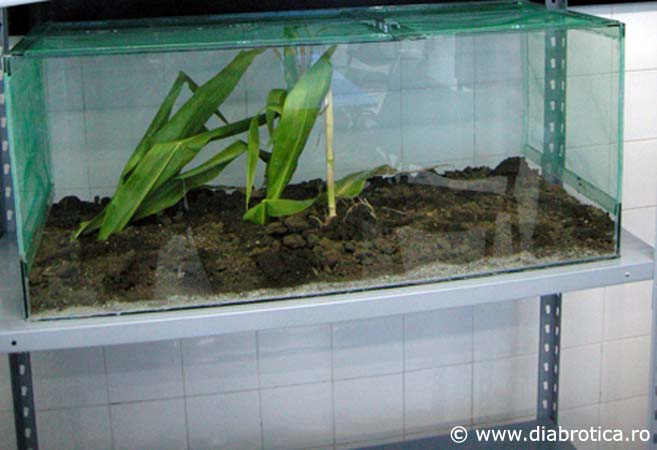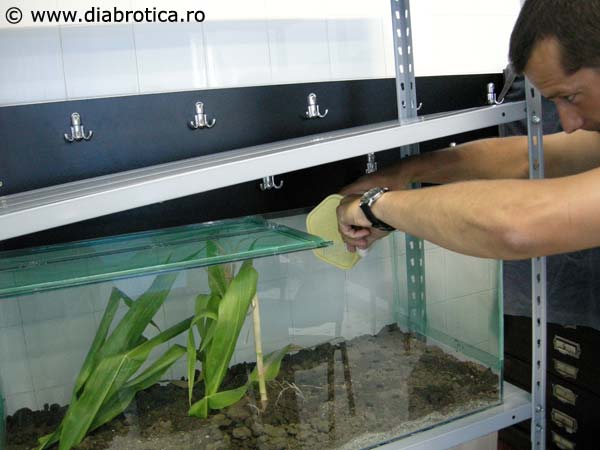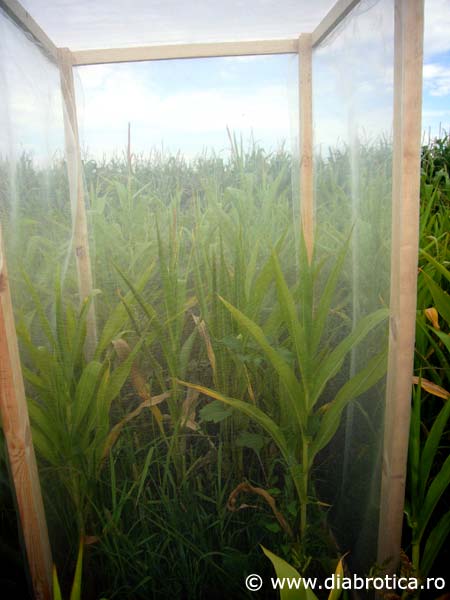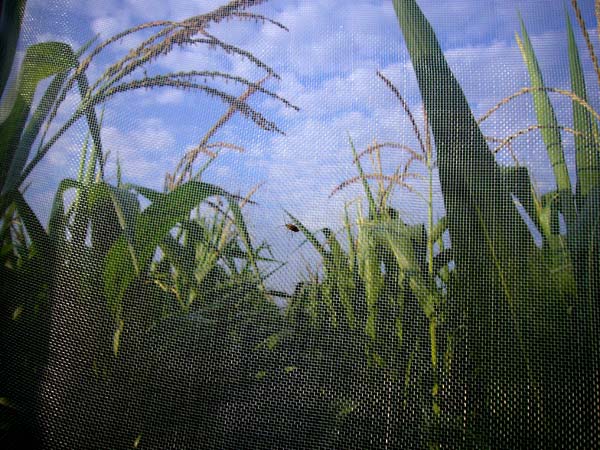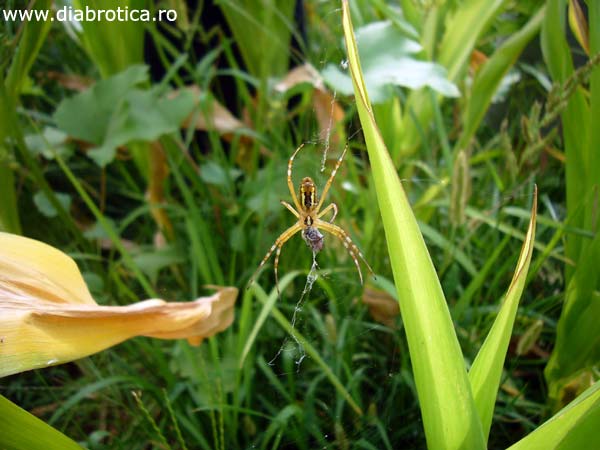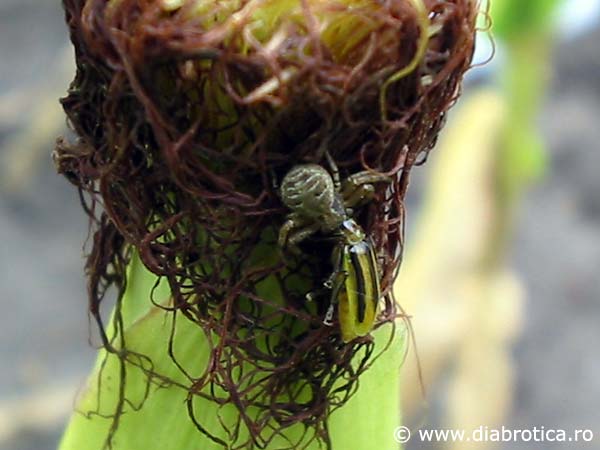2007 objectives
1. Exploration and identification of the animal species from the corn agrarian ecosystems from the Western part of the country
Establishing the experimental field, collection of the soil test (commune Sag, Timis county)
The detailed study of the soil tests and plant in the pheno-phasis of 2-3 leaves; Recipient with the soil test and corn plant; Studying the test in the pheno-phasis of de 8-10 leaves
Macroscopic observation directly in the corn cultivation
Installation of the pheromonal and colored traps
The systematics of the present species.
The present animal organisms belong to the branches: Nemathelminthes, Annelida, Arthropoda and Chordata (sub-branch. Vertebrate). Representative were the classes: Nematoda, Arachnida, Miriapoda, Bug, Mammalia. Also they belong to the following order: Opisthopora, Araneae, Megadenopoda, Collembola, Homoptera, Coleoptera, Lepidoptera, Diptera and Rodentia. The main families in the tests were: Aphididae, Cicadellidae, Elateridae, Chrysomelidae, Curculionidae, Noctuidae, Pyraustidae, Microtidae.
The animal species present in the experimental field from commune Sag, Timis county, in year 2007
BRANCH |
CLASS |
ORDER |
FAMILY |
SPECIES |
Nemathelminthes |
Nematoda |
Triplonchida |
Trichodoridae |
Paratrichodorus minor |
Annelida |
Oligocheta |
Opisthopora |
Lumbricidae |
Lumbricus trerestris |
Arthropoda
|
Arachnida |
Araneae |
Araneidae |
Speira diademata |
Theriidae |
Argiope bruennichi |
Theridion impressum |
Miriapoda |
Megadenopoda |
Scutigerelidae |
Scutigerella immaculata |
Bug |
Diplura |
|
Campodea staphylinus |
Homoptera |
Aphididae |
Aphis maydis Fich. |
Cicadellidae |
Macrosteles sexnotatus |
Coleoptera |
Chrysomelidae |
Diabrotica virgifera virgifera Le Conte |
Oulema melanopa L. |
Phyllotreta vittula Red. |
Phyllotreta atra F. |
Chaetocnema arridula Gyll. |
Phytodecta fornicata Brugman. |
Curculionidae |
Tanymechus dillaticolis Gyll. |
Elateridae |
Agriotes sp. |
Tenebrionidae |
Opatrum sabulosum L. |
Carabidae |
Zabrus tenebrioides Goeze |
Pseudophomus rufipes |
Carabus ullrich |
Scarabeidae |
Anisoplia sp. Hbst. |
|
Coccinelidae |
Coccinella sp. |
Lepidoptera |
Pyraustidae |
Ostrinia nubilalis Hb. |
Noctuidae |
Scotia segetum Schiff. |
Diptera |
Chloropidae |
Oscinis frit L. |
Chordata (Vertebrate) |
Mammalia |
Rodentia |
Microtidae |
Microtus arvalis Pall. |
2. Underlining the natural well-known enemies and of the potential local agents of classic control
The study of the soil tests, in order of the useful species identification
Among the species present in the studied agrarian systems, the following are belonging to the useful range: Speira diademata, Argiope bruennichi, Theridion impressum, Coccinella sp., Pseudophomus rufipes, Carabus ullrich.
Argiope bruennichi
Speira diademata
Species from the family of Theriidae (not known)
3 Underlining the functionality and efficiency of using the local utile range
Among the benefic species observed in the experimental field, the spiders from the type Argiope (Argiope bruennichi) registered the highest degree of mortality among the adults.
Preparation of the shelves with the special terrariums for introducing the Diabrotica adults and of the natural enemies
Preparation of the observation cages in the corn cultivation
In each experimental variant (I, II) 2 apparition cages were placed, containing each 4 plants of corn. Their height was 2,20 m so that it could allow the normal development of the corn plants. The soil was covered with a very thin net, allowing the airing but not the escape of the Diabrotica adults. In the pheno-phasis of forming the corn cob and of the silk apparition we started the observation in order to determine the biological functionality. In each cage there were introduced 50 adults (male) of Diabrotica and 5 spiders of Argiope bruennichi. These have been previously collected near the place of the cage installing (in order to maintain same raising and development conditions). After 10 days the adults of Diabrotica were counted, in the inside of the cage (by detailed study and by sacrificing the corn plants) and the attack degree was evaluated. Observations were made every day and the images were photographed.
The Argiope bruennichi spider sacking the adult of Diabrotica virgifera
Spider (un-identified species similar to the Xisticus type) sacking the adult of Diabrotica virgifera
Bibliographic observations
- Chu H.F., Laurence K. Cutkomp, 1992, How to know the immature insects, Second Edition, Wm. C. Brown Communication, USA.346 p.
- Grozea Ioana, 2006, Entomologie specială, Ed. Mirton, 332 pagini
- Rogojanu V. 1968, Determinator pentru recunoaşterea dăunătorilor plantelor cultivate. Ed. Agrosilvică, Bucureşti.
- Timothy J. Gibb, Christian Y. Oseto, 2006, Arthropod collection and identification, Purdue University, Academic Press, 312 p.
- Tóth F., Tuska T., Kiss J., Effect of Theridion impressum (Aranae: Theridiidae) on the silk clipping of Diabrotica virgifera virgifera adults in hybrid seed corn in Hungary, XXI IWGO Conference, VIII Diabrotica Subgroup Meeting, Legnaro-Padua-Venice-Italy, Oct.27., 89 (2001).
- Urack Isvan, A study of the spiders (Aracneidae:Araneae) in the upper basin of the Olt rivers, teză de doctorat, abstract , Cluj Napoca, 2005.
- Vincent H Resh, Ring T Carde , 2003, Encyclopedia of insects, Academic Press Elsevier Science, Amsterdam, Boston, London, Paris, San Diego, 1266 pag
- Wout, W. M. 1980. Biology, life cycle and redescription of Neoaplectana bibionis Bovien,1937, (Nematoda: Steinernematidae), Journal of Nematology 12:62-72
- Zhang F., Toepfer S., Kuhlmann U., Selection of potenţial non-target coleopteran host species for assessing the host specificity of exotic biological control agents, XXI IWGO Conference, VIII Diabrotica Subgroup Meeting, Legnaro-Padua-Venice-Italy, Oct.27., 61 (2001).
|

